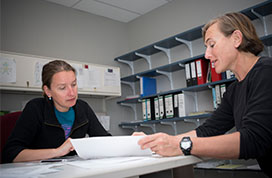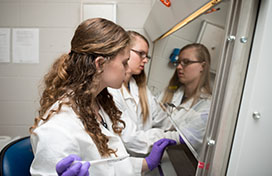Studying the secretions of mesenchymal stem cells

DVM, Ph.D.
Baker Institute for Animal Health
235 Hungerford Hill Road
Ithaca, NY 14853
Phone: (607) 256-5617
Fax: (607) 256-5608
grv23@cornell.edu
Initially, the use of mesenchymal stem cells (MSC) for tissue regeneration was advocated based on their ability to differentiate into various tissue types. For this reason, it was anticipated that injected MSC colonize the injury site, differentiate into the appropriate mesenchymal tissue type, and regenerate the damaged tissue. However, since experimental studies showed that only a small portion of administered MSC actually incorporate into injured tissue, it is now becoming generally accepted that the beneficial effects in tissue repair and regeneration are more likely indirect, depending on the paracrine effects of what these cells secrete. This intriguing finding opens up novel therapeutic perspectives based on the development of cell-free regenerative therapies using the secretome of MSC that includes both soluble factors and factors released in extracellular vesicles (EV). Such cell-free therapies might prove safe and potentially more advantageous alternatives by overcoming the risks and obstacles associated with the allogeneic use of these cells themselves.
We are currently exploring the secretome of equine mesenchymal stem cells to identify important factors secreted by these cells that have beneficial regenerative properties, more specifically in relation to equine wound management. Thus far we have found that the equine MSC secretome promotes new blood vessel formation and stimulates the migration of skin fibroblasts in vitro. We are also exploring delivery systems for the secretome and have found that microencapsulation of equine MSC allows for the release of the secreted bioactive factors while protecting the cells from its microenvironment (i.e. potential rejection reactions when using stem cells for allogeneic therapy). Based on these encouraging in vitro findings, we are planning to evaluate the potential of these microencapsulated MSC in wound healing studies in horses.





